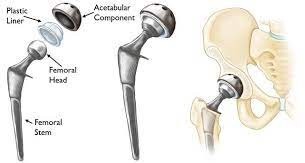A client is admitted with protein-calorie malnutrition and is receiving supplemental feedings through a naso-duodenal tube. Which assessment finding indicates that the client's nutritional status is improving?
Urine output 200 mL over the last 4 hours.
Decreasing serum albumin levels.
Weight gain of 0.75 kg in the last 2 days.
Sodium (Na) level 128 mEq/L.
The Correct Answer is C
Weight gain is a positive indicator of improved nutritional status. It suggests that the client is receiving adequate nutrition and their body is able to build up and retain weight. This is particularly important in the case of protein-calorie malnutrition, as it indicates that the client is receiving sufficient protein and calories to support their nutritional needs.
Nursing Test Bank
Naxlex Comprehensive Predictor Exams
Related Questions
Correct Answer is A
Explanation
Anaphylaxis is a severe and potentially life-threatening allergic reaction that can lead to a rapid drop in blood pressure, known as hypotension. This drop in blood pressure is a critical indicator of the severity of the reaction and the effectiveness of the treatment provided. The nurse needs to monitor the patient's blood pressure closely to ensure it stabilizes and returns to a safe range.
While oxygen saturation, heart rate, and orientation are also important parameters to assess, they are secondary to blood pressure in evaluating the effectiveness of treatment for anaphylaxis. Oxygen saturation can help determine the adequacy of oxygenation, heart rate can indicate the presence of tachycardia (which may be a sign of an ongoing reaction or hypoperfusion), and orientation can provide information about the patient's mental status and potential complications.
Correct Answer is C
Explanation
The patient bending over the sink while brushing teeth requires intervention by the nurse. After hip arthroplasty using the posterior approach, the patient should avoid bending at the hip greater than 90 degrees to prevent dislocation of the prosthesis. The nurse should instruct the patient to bend at the knees instead of the hips while brushing teeth or doing any other activity that requires bending. The other actions mentioned in the options are appropriate for a patient after hip arthroplasty.

Whether you are a student looking to ace your exams or a practicing nurse seeking to enhance your expertise , our nursing education contents will empower you with the confidence and competence to make a difference in the lives of patients and become a respected leader in the healthcare field.
Visit Naxlex, invest in your future and unlock endless possibilities with our unparalleled nursing education contents today
Report Wrong Answer on the Current Question
Do you disagree with the answer? If yes, what is your expected answer? Explain.
Kindly be descriptive with the issue you are facing.
